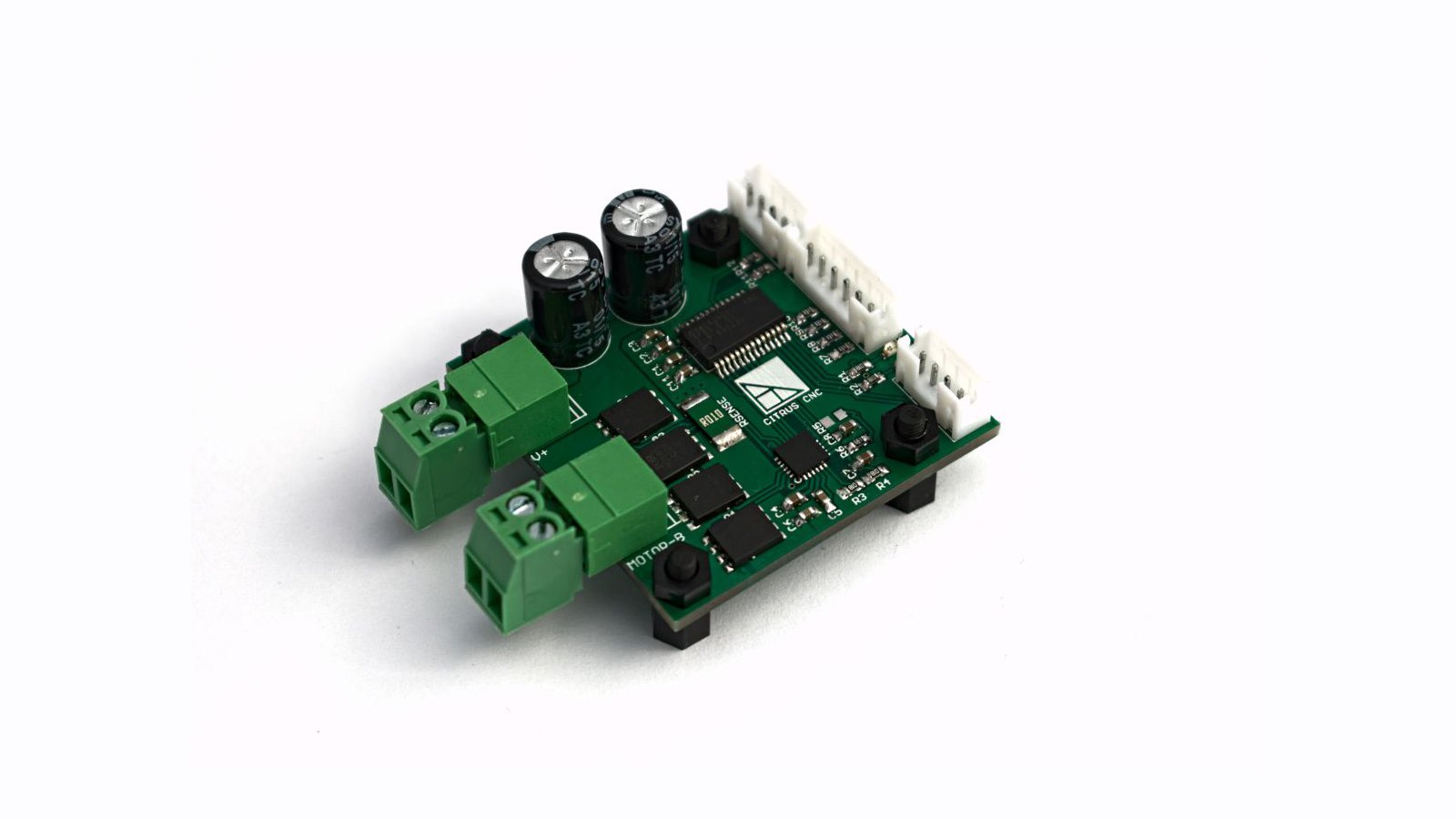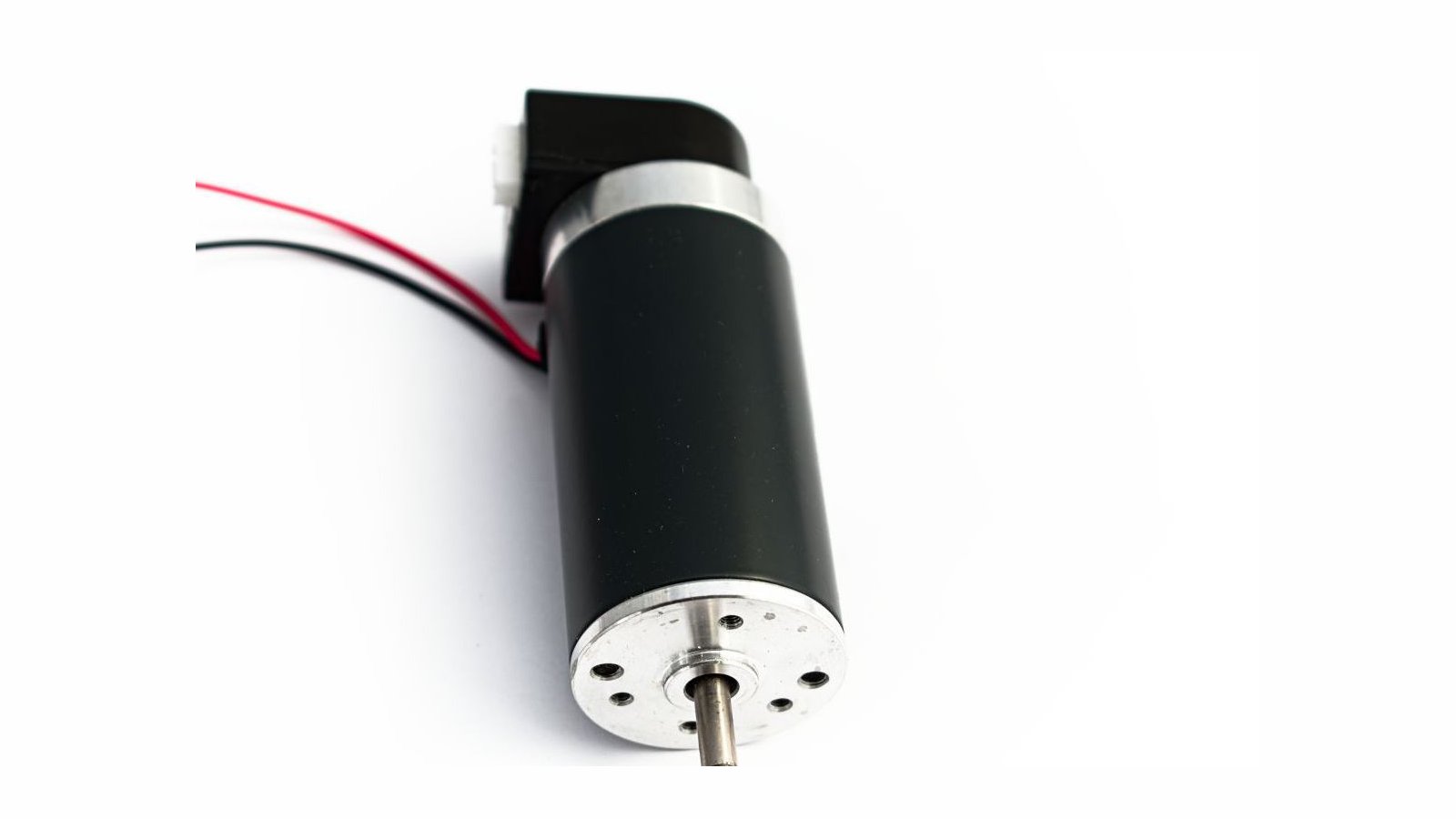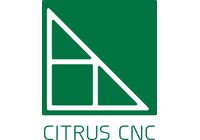Desktop CNC machinery typically uses stepper motors, often because they result in lower system cost, since they don’t require a position feedback sensor. But there are some situations where having a position feedback sensor is desirable or necessary, and the power output of a stepper motor, specially at high speeds, becomes the bottleneck for those who want a better performing machine.
I wanted to build a desktop CNC mill that was as impressive as some big name industrial machines. I decided to use brushed motors, as good quality and performance, reasonably priced units are easy to find and come in a wide variety of mechanical and electrical configurations. Speeds in excess of 15 m/min or 600 inches per minute and pushing through metal are no problem for a brushed servomotor coupled to a ballscrew, and the position feedback lowers the risk of ruining a machine job.
But it was difficult to find a commercially available, low cost motor controller, as they often have features one does not really need, or they’re built to handle large motors. That’s why I decided to create what would become the Tarocco motor controller.
You should consider buying this controller if you:
Tarocco allows the use of brushed motors with CNC machine controllers that communicate using the popular step and direction signal interface. As the controller receives step pulses at certain frequency, it will try to spin the motor immediately while reading the encoder signal, ensuring the number and frequency of encoder pulses correspond to the step signal. It essentially allows to drive a brushed motor as a stepper motor of not just, 800, 1600, or even 3200 steps per revolution, but the resolution of the quadrature encoder you use, which can be any value you need. If the controller, for some reason, cannot make the motor reach the desired position, it will signal the other controllers in the system, allowing them to stop their respective motors in time to avoid messing up the printing or cutting job.
The controller can deliver up to 360 W (36 V 10 A) continuously to a motor, making it a good choice for machines that need to accelerate bigger loads or where high speed motion is required. It also features a current limiting function, useful for protecting the motor from overheating and for controlling the amount of torque exerted on the machine.
| Tarocco | Leadshine DCS303 | CNCdrive DG4S-08020 | Geckodrive G320X | |
|---|---|---|---|---|
| Supply Voltage | 36 V | 30 V | 80 V | 80 V |
| Continuous current | 10 A | 3 A | 20 A | 20 A |
| Input frequency | 200 kHz | 200 kHz | 400 kHz | 200 kHz |
| Open Source | Yes | No | No | No |
| Price | $55 USD | $102 USD | $110 USD | $127 USD |
Visit hackaday.io or GitHub for more information.
Produced by Citrus CNC in Mexico City, Mexico.
Sold and shipped by Crowd Supply.

Includes one fully assembled Tarocco board, wire harness, and standoffs for easy installation.

A 24 V, 4000 RPM servomotor for your Tarocco. Includes 1440-counts-per-revolution optical encoder. Available while supplies last. Discounted from the original $40 price.
